Boy’s Club Day
Malcolm X Day (United States)
May 19, 1536 – Anne Boleyn, second wife of Henry VIII of England, was executed. The day after Anne’s execution, the 45-year-old Henry became engaged to Jane Seymour, who had been one of the Queen’s ladies-in-waiting. They were married ten days later.
Massachusetts Bay, Plymouth, Connecticut and New Haven formed United Colonies of New England, also called the New England Confederation on May 19, 1643. It was revoked in the early 1680’s. Its primary purpose was to unite the Puritan colonies in support of the church, and for defense against the American Indians and the Dutch colony of New Netherland.
1802 – French Order of Legion d’Honneur formed.
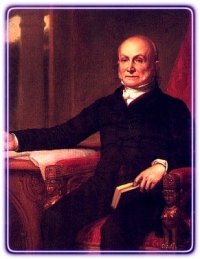 1828 – U.S. President John Quincy Adams signed the Tariff of 1828, also called the Tariff of Abominations, into law to protect industry in the North. It set a 38% tax on some imported goods and a 45% tax on certain imported raw materials.
1828 – U.S. President John Quincy Adams signed the Tariff of 1828, also called the Tariff of Abominations, into law to protect industry in the North. It set a 38% tax on some imported goods and a 45% tax on certain imported raw materials.
1862 – Homestead Act became law to provide cheap land for settlement of West.
President Jefferson Davis was captured by Union Cavalry in Georgia May 19, 1865.
1884 – Ringling Brothers’ Circus premiered. It was founded by five of the seven Ringling brothers.
First mass production of shoes developed by African-American, Jan Matzeliger, in Lynn, Massachusetts in 1885. Production of shoes went from 50 pairs to 700 pairs per day.
Post Office authorized use of postcards in 1898 but they had to be called “souvenir cards”.
Congress sharply curbed immigration, setting a national quota system in 1921.
German occupiers in Holland in 1941 forbade bicycle taxis.
 1941 – New Nazi battleship Bismarck left Gdynia, Poland.
1941 – New Nazi battleship Bismarck left Gdynia, Poland.
1943 – Berlin was declared “Judenrien” (free of Jews).
US and Canada formed North American Air Defense Command (NORAD) in 1958.
1967 – USSR ratified treaty with England and the U.S. banning nuclear weapons in space.
1971 – USSR launched Mars 2 on May 19, 1971. It is the first spacecraft to crash land on Mars.

 1830 – Edwin Budding of England signed an agreement for manufacture of his invention, the lawn mower.
1830 – Edwin Budding of England signed an agreement for manufacture of his invention, the lawn mower. May 18, 1980 – Mount Saint Helens erupted in Washington State, killing 57 people, and changing the surrounding landscape completely.
May 18, 1980 – Mount Saint Helens erupted in Washington State, killing 57 people, and changing the surrounding landscape completely.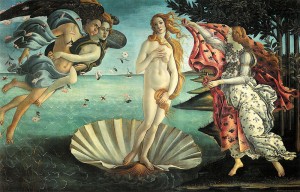 May 17, 1510, death of Sandro Botticelli (Alessandro di Mariano di Vanni Filipepi), Italian painter of the Early Renaissance.
May 17, 1510, death of Sandro Botticelli (Alessandro di Mariano di Vanni Filipepi), Italian painter of the Early Renaissance.  On May 17, 1943, the United States Army contracts with the University of Pennsylvania’s Moore School to develop the ENIAC.
On May 17, 1943, the United States Army contracts with the University of Pennsylvania’s Moore School to develop the ENIAC. 1970 – Thor Heyerdahl crossed Atlantic on reed raft Ra.
1970 – Thor Heyerdahl crossed Atlantic on reed raft Ra. Jean Joseph Etienne Lenoir built first automobile in 1862. He was a Belgian engineer who developed the internal combustion engine in 1858.
Jean Joseph Etienne Lenoir built first automobile in 1862. He was a Belgian engineer who developed the internal combustion engine in 1858.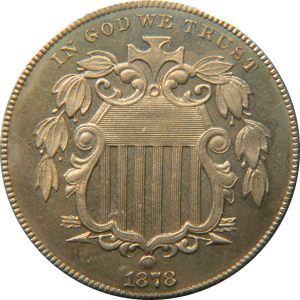 In 1866, Congress authorized the nickel 5 cent piece to replace the silver half-dime.
In 1866, Congress authorized the nickel 5 cent piece to replace the silver half-dime.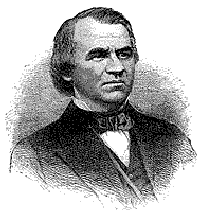 By one vote, Senate fails to impeach
By one vote, Senate fails to impeach 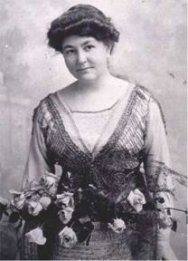 Birthday of Ellen Axson Wilson ( (May 15, 1860), wife of
Birthday of Ellen Axson Wilson ( (May 15, 1860), wife of 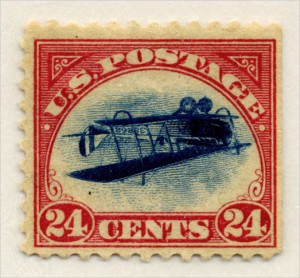 1918 – First airmail postal service inaugurated with service from New York to Philadelphia and to Washington, D.C. The first U.S. airmail stamp cost 24 cents. Domestic airmail became obsolete in 1975 and international air-mail in 1995.
1918 – First airmail postal service inaugurated with service from New York to Philadelphia and to Washington, D.C. The first U.S. airmail stamp cost 24 cents. Domestic airmail became obsolete in 1975 and international air-mail in 1995. 1973 –Nolan Ryan pitches his first no-hitter. He had seven in his active career.
1973 –Nolan Ryan pitches his first no-hitter. He had seven in his active career.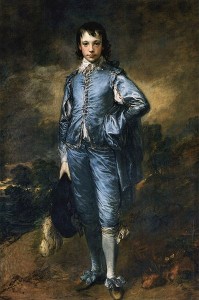
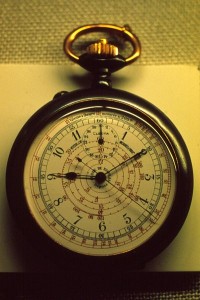 In 1862 Adolphe Nicole of Switzerland patents
In 1862 Adolphe Nicole of Switzerland patents  Last Chevrolet Corvair built in 1969.
Last Chevrolet Corvair built in 1969. On May 14, 2005, the USS America (CV-66), a decommissioned supercarrier of the United States Navy, (commissioned in 1965) is deliberately sunk in the Atlantic Ocean after four weeks of live-fire exercises. She is the largest ship ever to be disposed of as a target in a military exercise. She was the last supercarrier not named after a person.
On May 14, 2005, the USS America (CV-66), a decommissioned supercarrier of the United States Navy, (commissioned in 1965) is deliberately sunk in the Atlantic Ocean after four weeks of live-fire exercises. She is the largest ship ever to be disposed of as a target in a military exercise. She was the last supercarrier not named after a person.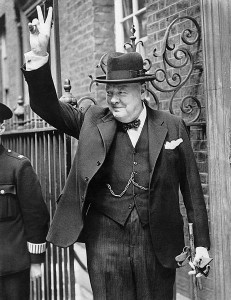 1940 – Churchill says “I have nothing to offer but blood, toil, tears & sweat.” in his first speech to the House of Commons as Prime Minister.
1940 – Churchill says “I have nothing to offer but blood, toil, tears & sweat.” in his first speech to the House of Commons as Prime Minister. St Louis’ Busch Memorial Stadium opened in 1966. It was home to the St. Louis Cardinals National League Baseball team for its entire operating existence while also serving as home to the NFL’s Cardinals team from 1966-1987. It replaced Sportsman’s Park. It was demolished in 2005 and replaced with the new Busch Stadium.
St Louis’ Busch Memorial Stadium opened in 1966. It was home to the St. Louis Cardinals National League Baseball team for its entire operating existence while also serving as home to the NFL’s Cardinals team from 1966-1987. It replaced Sportsman’s Park. It was demolished in 2005 and replaced with the new Busch Stadium.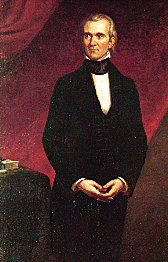

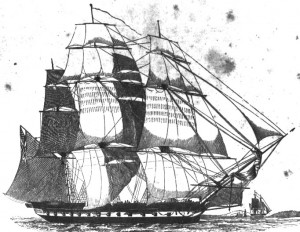 May 10, 1797, the First Navy ship, the “USS United States,” is launched
May 10, 1797, the First Navy ship, the “USS United States,” is launched